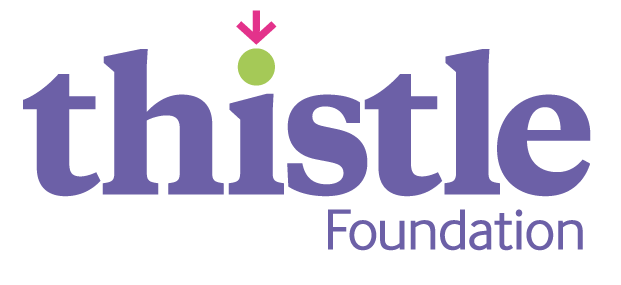Mindfulness Courses
Thistle Wellbeing Service has been running mindfulness courses for over 20 years and mindfulness is an important part of the Lifestyle Management Course.
Mindfulness Resources
Our Mindfulness Peer Volunteers and Wellbeing Practitioners have made some audio files of the practices that we cover on the 5 week Mindfulness in Nature Course and the 8 week Mindfulness Based Living Course to help you to continue your own regular practice at home both during and after your course. We hope that you find them helpful.
Choose which courses audio files you wish to select below.

What is mindfulness?
Mindfulness is often described as ‘being’ rather than ‘doing’. So, when we learn to practice mindfulness we learn to be with all of our thoughts and emotions – including the difficult ones – with gentleness and kindness. We learn that there is nothing wrong with feeling unpleasant sensations or emotions – they are part of the human condition – and that when we desperately try to make them go away or block them out we are making them worse! We learn to really appreciate and be with moments of joy.
We learn that we are not our thoughts and that our thoughts are not necessarily true – there is no inherent wisdom in them – and they are often not very kind. So we can choose to see them and gently be with them but know that we don’t need to get so involved. We learn how to bring the mind back to the present moment rather than getting caught up in thoughts about the past or future – which the human mind has a very strong habit of doing! So we use a present moment support – like the breath, sensations in the body, the body moving or walking, or one of the senses such as sound or touch to anchor the mind in the present moment. The senses, the breath and body are always in the present. They are our friends and can help us learn to live more in the present moment. We learn to bring the attention back very gently and kindly to the present moment time and time again.
We also learn to be much kinder and more compassionate to ourselves. This is a very important part of mindfulness. There is no ‘wrong’ or ‘right’ mindfulness practice – there is just noticing what our experience is, in this moment and seeing if we can tap into our own natural kindness and begin to allow that to flow towards ourselves and others. We learn to be compassionate with ourselves knowing that we are not alone – that everyone struggles with our tricky human minds that have a very strong habit of getting caught up in thinking loops. We begin to notice the judgements, thoughts and beliefs that we have about ourselves, and learn that we don’t need to get so involved with these – that they aren’t necessarily true or kind.
You can bring mindfulness to any regular daily activity like brushing your teeth, having a shower, feeding the cat or dog. You might like to decide to do one daily activity mindfully each time you do it and find a way of remembering – like putting a sticker on the kettle or a note in the bathroom.
Here is a reminder of how to have a mindful cup of tea or coffee (you can also do this with a cold drink)
Informal Mindfulness

Mindful drink
To have a mindful drink try noticing everything that you do as you make or pour the drink and whilst you drink it. It helps to slow things right down.
You might notice your steps as you walk towards the kettle. What does the kettle feel like? How does it feel to hold it?
What does the tap feel like?
What sounds do you notice as you start filling the kettle?
What colour is the water?
What sounds does the kettle make as it heats up and starts to boil?
What does your cup feel like as you touch it?
Is it cold or warm?
What sounds do you hear as you stir your drink with a spoon?
What do you notice as you take your first sip?
Take a few moments to reflect on what you noticed. Did it feel different to how you normally have a drink? What difference did it make to have a drink in this way?

Mindful Eating
In the video Jane shares a short Mindful Eating exercise.
Visit Us
Centre of Wellbeing, 13 Queen's Walk, Edinburgh EH16 4EA
Hours
Monday–Friday
9am–5pm
Phone
0131 661 3366




